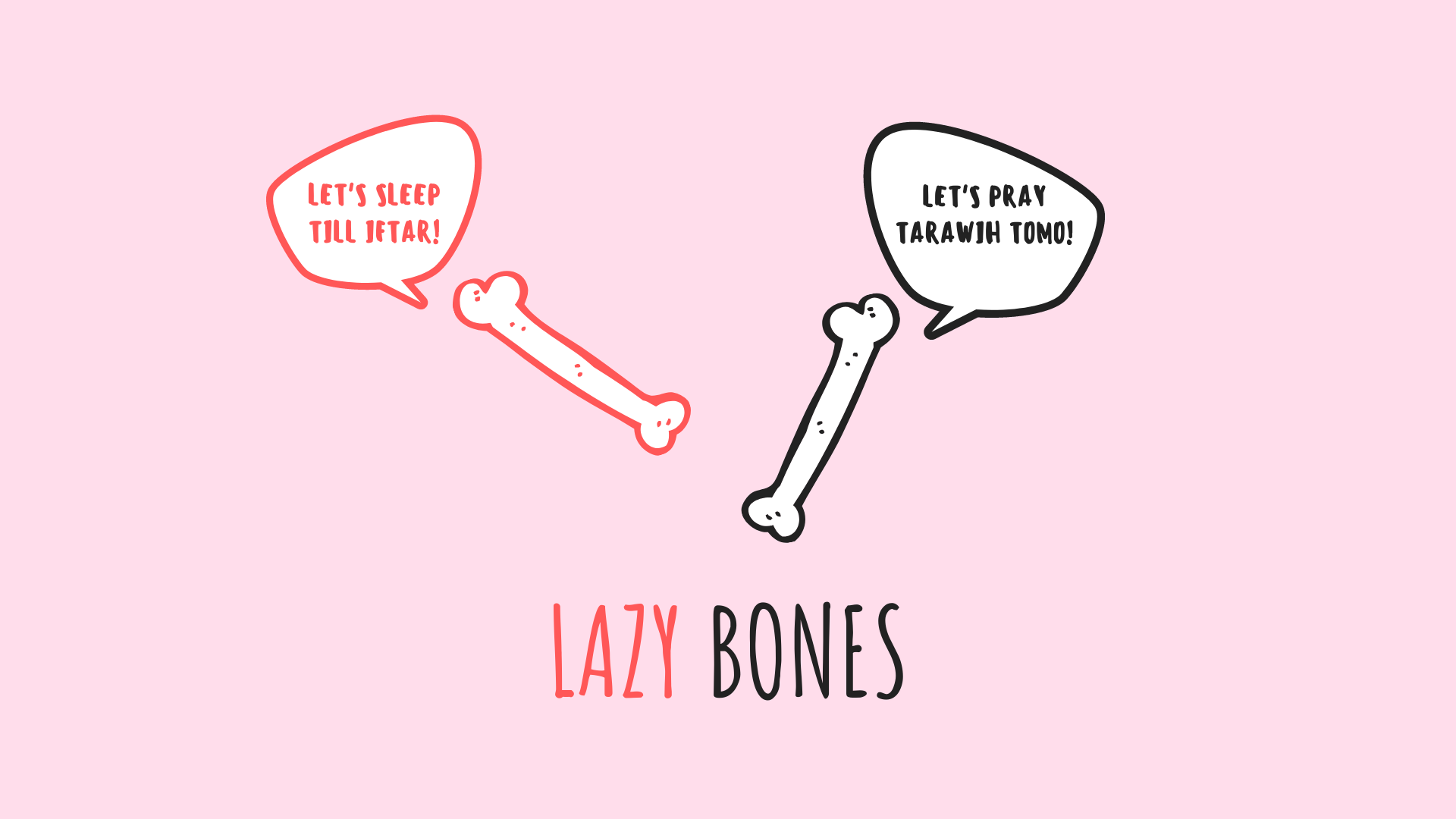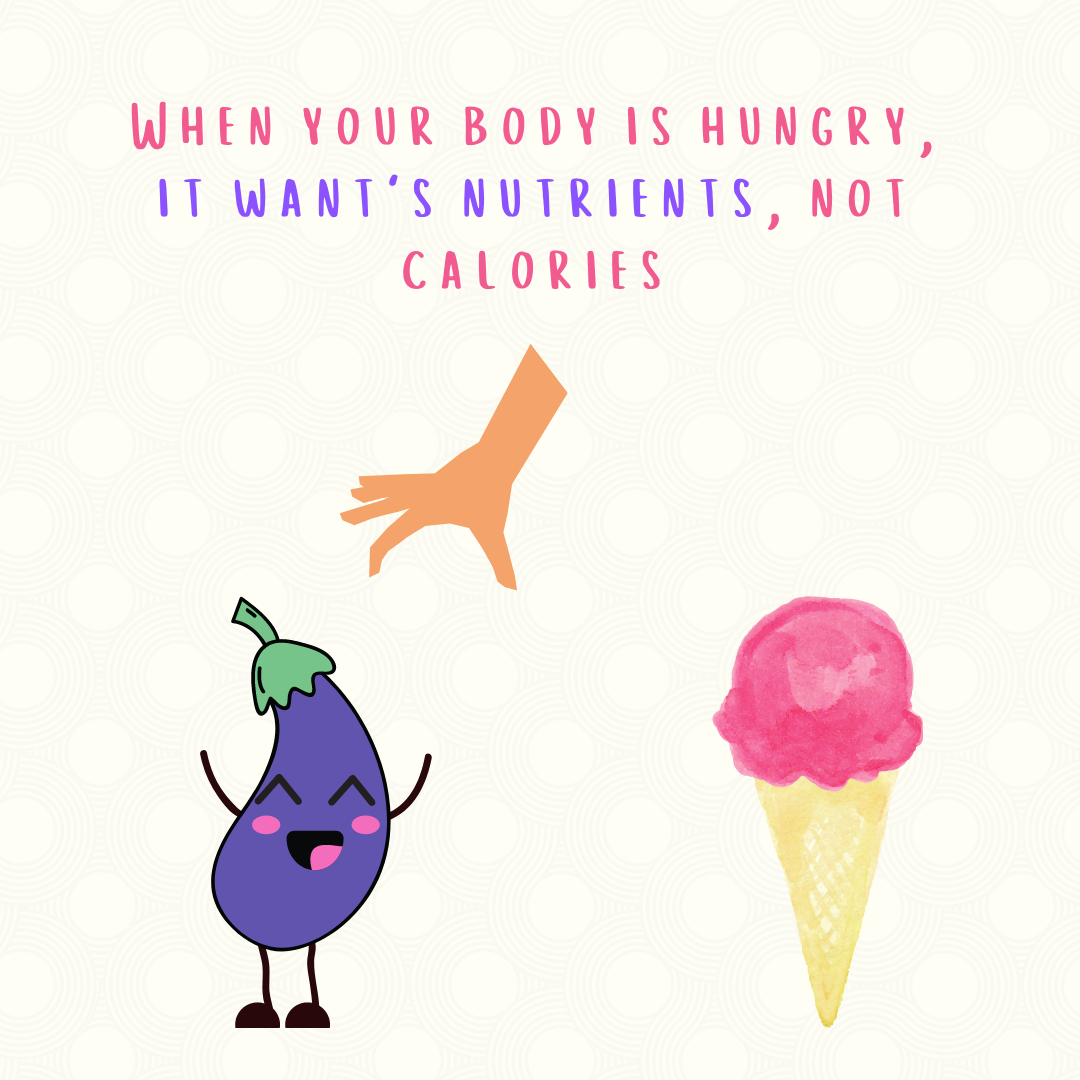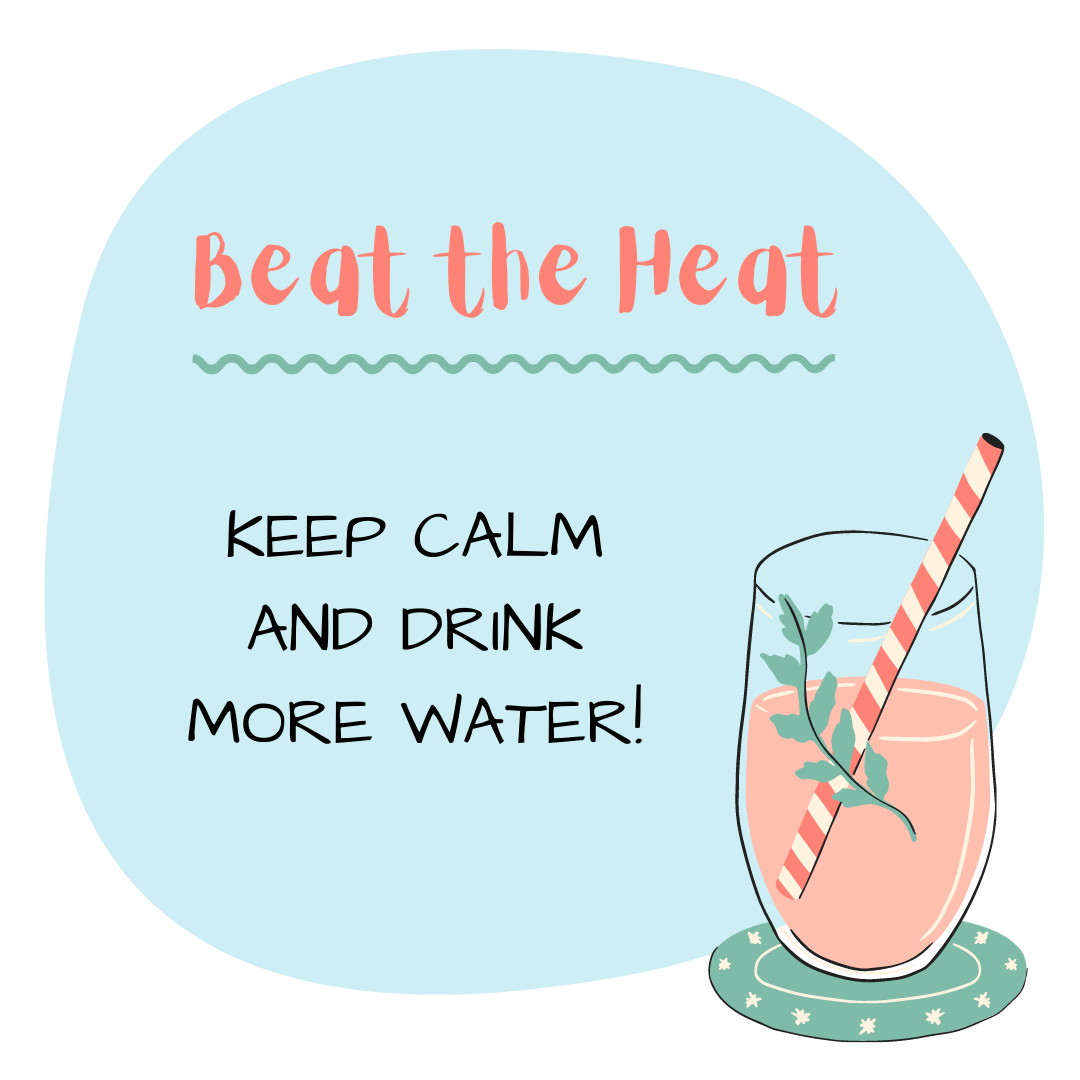Feeling hungry/thirsty throughout the day? Or just waiting for the Adhan to fill you up?
Food has become highly prestigious. It is evidently not just ‘fuel’ for us. Every food hints at a personality, an orientation, a way of apprehending the world. Daleem, Samosa, Pakodas (an Asian dish), kebabs, biryani. We have become collectively obsessed with what we eat.
We love Ramadhan, and we aspire to pray, reflect and perform many good deeds in this blessed month. Yet every year, we fall prey to the same old feeling. As the clock ticks, we become hungrier and feel unproductive, sedentary, and lazy to perform any extra deeds during the day. Hunger makes us feel and perform worse; physically, emotionally and spiritually. And with a rumbling and grumbling stomach, we just can't wait to hear the Adhan for Maghrib! Finally, as Maghrib time approaches and Iftar kicks in, we have one of the biggest and heaviest meal of our entire lives.
Iftar is given a major importance in our society, unlike Suhoor. But our Prophet (peace and blessings of Allaah be upon him) mentioned the blessing about Suhr, and not Iftar. Contrasting, isn't it? Because Suhoor is very important in our daily lives. What we need from food, is just physical sustenance.
👊 Busting the “Ramadan Laziness Myth”
During Ramadan, many Muslims feel that they become unproductive, sedentary, and lazy, simply because of the lack of food during the day. Despite fasting for 14-18 hours of a day, we gain weight in Ramadhan because of our bad eating habits. There is higher calorie intake than usual and less physical activity to burn it. Additionally sugary and fatty foods are consumed more frequently in Ramadan compared to non fasting time. The variety of food choices, their easy availability at supermarkets also contribute significantly to weight gain.

Did you know that several INCREDIBLE events in Islamic history took place in Ramadan? In fact, the famous Battle of Badr, and the Conquest of Makkah BOTH took place during Ramadan.
Finding energy to devote ourselves to worship, be productive at work, and squeeze in a healthy meals during Ramadan is not as overwhelming as it seems. Instead of dragging yourself through Ramadan feeling tired, sickly, and starved, eating a sufficient suhoor and a satisfying but portion controlled iftar will help you be active throughout the day whilst allowing you to feel charged and awake for taraweh. A healthy fast leaves you feeling energetic and alert, without suffering constant pangs of hunger throughout the day, or feeling bloated after an enormous iftar.
🍊 Ramadan is a PHASE SHIFT in eating patterns
According to the following research studies, Ramadan can best be summarised as a phase shift in calorie intake and a change in sleeping habits. Here’s what it means:
“Ramadan can best be summarised as a phase shift in calorie intake and a change in sleeping habits. These phase shifts may have effects on some activities of daily living, mood, motivation and maximal performance, with little effect on submaximal exercise. Food intake is not restricted during Ramadan; the restriction is when food is eaten. Shifting food intake until after sunset upsets the timing of intake and sleep patterns to accommodate the change in mealtime. This makes the influence of Ramadan on daily activities more a matter of CHRONOBIOLOGY than of calorie restriction.”
So now that we’re busted some of the myths surrounding laziness in Ramadan, let’s talk about another major way to boost your energy while fasting, Suhoor.
❤️🔥 IMPORTANCE OF EATING SUHOOR
The Messenger of Allaah (peace and blessings of Allaah be upon him) said: “Suhoor is a blessed meal, so do not omit it, even if one of you only takes a sip of water, for Allaah and His angels send blessings on those who eat suhoor.” Narrated by Ahmad
Suhoor is actually considered to be the main meal of Ramadan, as it supplies the body with large amounts of energy to help in the fasting. The Prophet (peace and blessings of Allaah be upon him) mentioned the blessing to encourage us to eat suhoor because there is a great deal of goodness and blessing, both spiritual and worldly, in it. Some of the blessings include:
1 – It gives strength for worship and helps one to obey Allaah during the day by praying, reading Qur'an, and remembering Allaah (dhikr). A hungry one may become lazy in worship just as he may become lazy in his daily work, this is well known.
2 – Suhoor wards off the bad attitude that may be provoked by hunger, so the one who eats suhoor will be in a good mood and will interact well with others.
Eating Suhoor can help you in stocking up on plenty of minerals that will surely keep your body active and healthy until the time to break the fast.
Not eating Suhoor can lead to many unexpected situations including having a really bad headache the next day especially due to inadequate food and water in your body. Many Muslims fall into the trap of adopting unhealthy habits during Ramadan, which makes you feel and perform worse; physically, emotionally and spiritually. A healthy body is able to worship Allah better and truly take advantage of this holy month.

🥗 WHAT SHOULD I EAT FOR SUHOOR THEN?
The recommended dietary allowance (RDA) required per day for women should be between 1266 kcals and 1485 kcals of energy and for men between 1546 and 1819 kcals of energy. Since we know now how much should be our daily intake during Ramadan, let’s know the importance of food groups that are important to include at your suhoor meals.
1. Carbohydrates
2. Protein
3. Fiber
4. Healthy fats
CARBOHYDRATES
(Keeps you full and helps your gut stay regular)
There are two types
• Complex carbs: Complex carbohydrates contain longer chains of sugar molecules than simple carbohydrates. Therefore they take longer to break down and provide more lasting energy to the body than simple carbohydrates.
Examples include - whole-wheat bread, whole wheat cereals, brown rice, oats, potato. Vegetables, legumes, and nuts are also examples of highly nutritious sources of complex carbohydrates.
Refined grains are also complex carbohydrates but do not contain the bran and germ of the grain, and they have a lower nutritional value than whole-grain foods. Examples of refined grains include white flour, white bread, white rice.
• Simple carbs: Simple carbohydrates, or sugars, are made up of shorter chains of molecules and are quicker to digest than complex carbohydrates. They provide the body with a short-lasting source of energy.
Examples include - candy, sugary drinks, syrups, table sugar, fruit juice concentrate
PROTEIN
(Delays hunger pangs and provides energy)
Protein is an important macronutrient that plays a major role in the entire body. Eating foods high in protein has many benefits, including muscle building, weight loss, and feeling fuller after eating, helps build, repair, and maintain tissues, as well as boost the immune system and lower the risk for diabetes.
The best source includes eggs, yogurt, beans, soy, fish, chicken breast, nuts, chia seeds, skim milk.

HIGH FIBER FOODS
Fibre keeps you feeling full longer, which is perfect for suhoor! High fiber foods will keep you from feeling hunger pangs early in the day. Fibre also helps keep everything moving through and out of your digestive system.
Good examples: Flax/chia seeds, apples, whole grains, oatmeal, broccoli, spinach, quinoa, beans, spinach, etc.
HEALTHY FATS
Keeps you full longer than fried foods. Not all fat is bad for you. Fat is a type of nutrient, and just like protein and carbohydrates, your body needs some fat for energy, to absorb vitamins, and to protect your heart and brain health.
Bad fats, such as artificial trans fats and saturated fats, are guilty of the unhealthy things which have been blamed for—weight gain, clogged arteries, an increased risk of certain diseases, and so forth.
• Examples include: Commercially-baked pastries, cookies, doughnuts, muffins, cakes, pizza dough
Packaged snack foods (crackers, microwave popcorn, chips), vegetable shortening, Fried foods (French fries, fried chicken, chicken nuggets, breaded fish)
But “good” fats such as unsaturated fats and omega-3 fatty acids have the opposite effect. In fact, healthy fats play a huge role in helping you manage your moods, stay on top of your mental game, fight fatigue, and even control your weight.
• Examples includes: Olive, canola, peanut, and sesame oils, Avocados, Olives, Nuts (almonds, peanuts, walnuts, hazelnuts, pecans, cashews), flax seeds, pumpkin seeds, Peanut butter, soy milk, tofu
🍉 A FEW HEALTHY SUHOOR MEALS
Feel free to try these ideas, or mix and match based on what suits you the best.
Start by drinking 2 glasses of water
Menu 1
- Mixed vegetable paratha (cabbage, carrot, capsicum)
- Coconut chutney
- 1 boiled egg
- 1 cup curd

Menu 2
- 1 bowl of oatmeal (rolled oats) topped with fruits
- 1 roti with chickpea
- 1 bowl of vegetable salad (veggies of your choice ) mixed with yogurt

Menu 3
- 2 multigrain roti (ragi, bajra, whole-wheat flour) with dal
- Scrambled eggs
- Dates and dry fruits (a handful)
- 1 cup curd

Menu 4
- 2 - 3 slices of Whole wheat bread with scrambled eggs
- 1 bowl of steamed or lightly sauteed vegetables with paneer
- 1 glass of milk with basil seeds

🥛 How Much Water Do I Need to Drink Daily?
The amount of water recommended is based on your height, weight, and energy. You should have 1mL of water per kilocalorie consumed.
Note: According to the Indian Council of Medical Research's Dietary Guidelines for Indians, a normal healthy person needs about eight glasses (two litres) of water a day
Of course during the long fasting hours of the day you will feel thirsty, therefore make water your main source of fluid intake. It is important to stay hydrated before and after the fast, and here are some tips that could help you.

• Drinking beverages such as soft drinks will fill up your stomach and may delay your digestion process resulting in a lot of problems including gas, bloating, stomach pain, and weight gain, so water is absolutely the best drink for Ramadan.
• Try not to drink large quantities of water all at once. Instead drink water between your meal and throughout the evening.
• Adding too much salt to salads and other dishes as well as eating salty foods like salted fish and pickles will make you thirstier because they increase the body’s need for water as they cause water retention.
Water requirement
- For women
2 to 2.5 litres per day which equals to approximately 8 glasses per day. - For men
3 to 3.5 litres per day which equals to approximately 12 glasses per day.
Ayesha Baig is a Nutritionist at Arriqaaq Health who has completed her Masters in Food and Nutrition. Her focus is on creating awareness about healthy eating and lifestyle changes along with personalised meal plans to help the community.
Like our content? Subscribe Peas!


